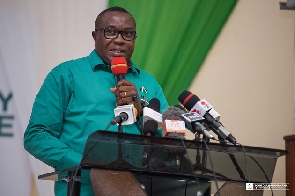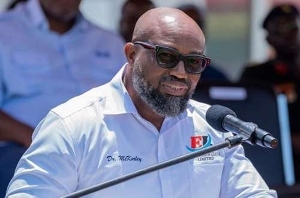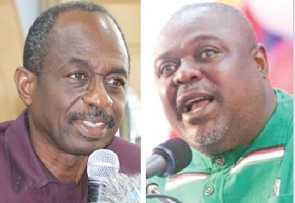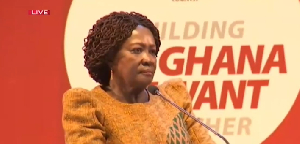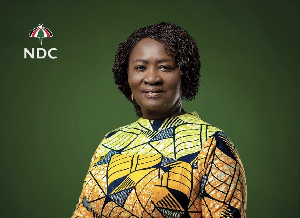 Khadidja Nene Doucoure, Regional Gender Coordinator for IFAD
Khadidja Nene Doucoure, Regional Gender Coordinator for IFAD
African governments are being urged to increase investments in agriculture as the sure way to end poverty.
Regional Gender Coordinator for the International Fund for Agricultural Development (IFAD) Khadidja Nene Doucoure wants more resources pumped into small scale Agriculture as a long-term solution to many of the problems the world faces today.
"Hunger, poverty, youth unemployment and forced migration all have deep roots in rural areas; and all can be vastly improved through investing in small-scale agriculture and inclusive rural development," she observed.
Madam Doucoure also wants more investment in women and the youth. She says they produce 80 percent of food on the African continent and so empowering them and enhancing their productivity is critical to developing agriculture and rural areas.
The IFAD official disclosed that nearly 1 billion of the world’s 1.2 billion youth aged 15-24 reside in developing countries, making them a crucial tool for the development of the continent.
"Their numbers are growing far more rapidly in lower income countries than in higher income countries, particularly in rural areas across Africa," Doucoure said.
“The growing youth population has enormous potential; investing in young people can yield boundless results in terms of poverty reduction, employment generation, food and nutrition security," she indicated.
She was speaking during a four days training workshop on ‘Reporting on Rural Development and Agriculture’ organized by Thomson Reuters Foundation in partnership with the International Fund for Agricultural Development (IFAD) in Dakar, Senegal.
The workshop was aimed at helping deepen journalists’ knowledge about rural development and to improve their rural reporting skills. The training which brought together 14 journalists from 13 countries in West, Central and Southern Africa focused on the needs of smallholder farmers and how innovative solutions can improve their lives.
"We envision a world in which extreme poverty and hunger are eliminated and every rural family lives in dignity.Where everyone has reliable access to healthy and nutritious food. Where young people feel hopeful about the future, and empowered to build prosperous and sustainable livelihoods. We want rural economies to thrive while also supporting sustainable development and management of natural resources" Doucoure said.
A Senegalese farmer and President of the Purchasing Centre, Marième Faye Diagné, told participants her country is a living example of how increased investment in rural areas can help eliminate poverty. She referenced a project by IFAD which is supporting the Senegalese government to finance an Agricultural Value Chain Support Project as a great initiative.
Between 2010 and 2016, the project invested $37.6 (22 billion CFA) in rural communities to support nearly 2000 producers and 62 smallholder organizations within the Kaolack region. The investments are helping sustain livelihoods, improve food security and incomes of small producers. It is also creating sustainable and remunerative jobs for rural people, especially young people and women.
Despite the largest portion of the world’s fertile farming land being in Africa and more than 70% of the working force on the continent engaged in farming, Africa still spends more than $50 billion importing food annually. An estimated one in every five children on the continent are also malnourished and hunger is endemic on the continent.
Diagné is advocating for the youth to be given good skills, resources and the confidence they need to run profitable farms and innovative businesses to help deal with the challenges above. "We recognize that access to new and traditional knowledge and innovations, markets, and land, when complemented by skills and training, can enable youth to drive inclusive transformation of rural areas and long-term food security and poverty eradication,” she said.
“Investing in young people is the bottom line. If we neglect them now, as their parents were in many cases neglected, we will have to face the same issues in the future that we have today," Diagné pointed out.
- 'Planting for Food and Jobs' not massive, transformative enough – Citizen Kofi
- Food is expensive despite PFJ programme – IEA
- Build more irrigation facilities - Physically-challenged farmer to Akufo-Addo
- 300 pick-ups given to extension officers – Agric Minister
- I’m a beneficiary of NPP’s Planting for Food and Jobs - Former NDC MP
- Read all related articles


